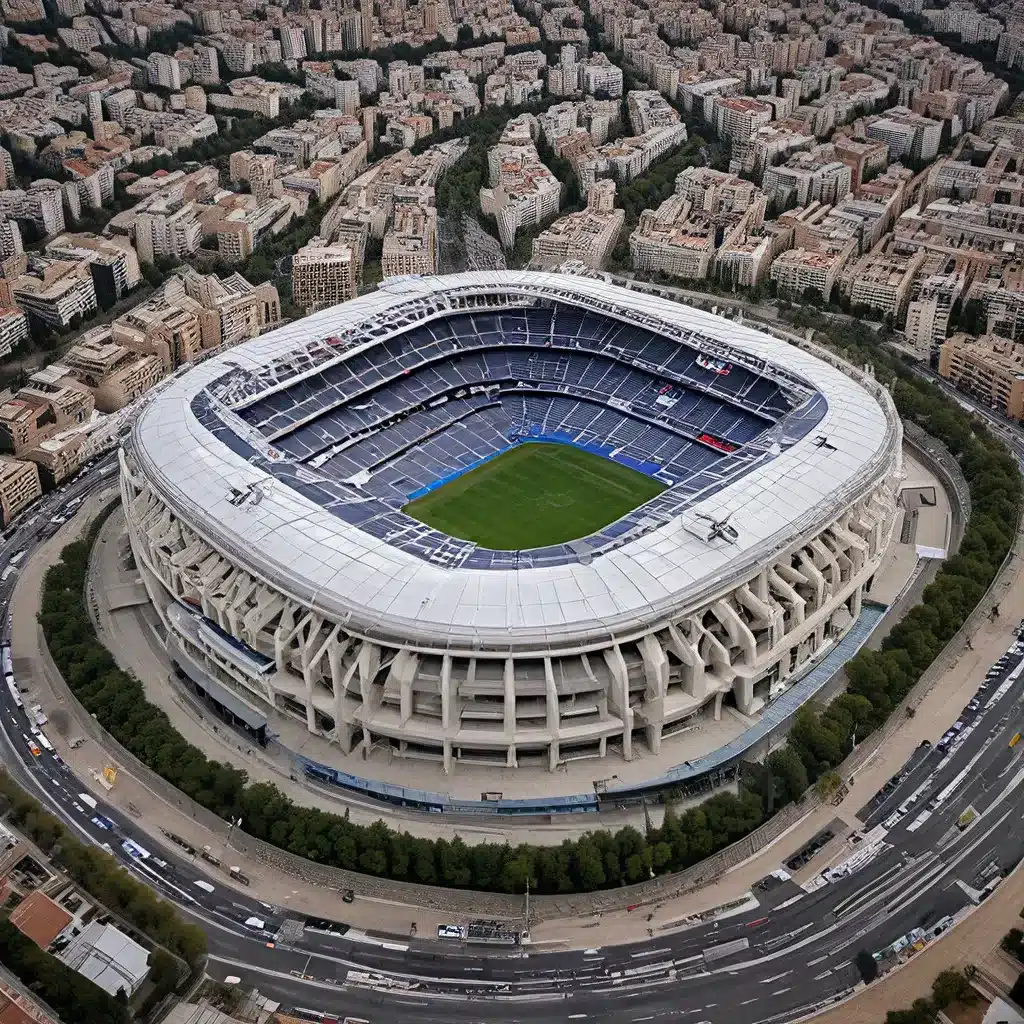
The Iconic Home of Real Madrid
The Estadio Santiago Bernabéu is a true icon of world football, serving as the home stadium of the legendary Real Madrid CF. Located in the heart of the Spanish capital, this multi-purpose venue has been the stage for some of the most thrilling and historic moments in the beautiful game.
Opened in 1947, the Bernabéu has undergone numerous renovations and expansions over the decades to keep pace with the ever-evolving demands of modern football. Today, it stands as one of the most technologically-advanced and visually stunning stadiums in the world, a true testament to Real Madrid’s commitment to innovation and excellence.
A History of Grandeur and Glory
The origins of the Estadio Santiago Bernabéu can be traced back to the 1920s when Real Madrid outgrew its previous home, the Estadio Chamartín. In 1944, the club’s president, Santiago Bernabéu Yeste, proposed the construction of a new, state-of-the-art stadium that would cement Real Madrid’s status as one of the premier clubs in Europe.
The stadium’s inaugural match took place on December 14, 1947, with Real Madrid defeating Os Belenenses in a friendly match. From that moment on, the Bernabéu has been the beating heart of Real Madrid’s illustrious history, hosting countless triumphs and memorable moments.
Over the years, the stadium has witnessed the rise of some of the greatest footballers to ever grace the pitch, including Alfredo Di Stéfano, Ferenc Puskás, Zinédine Zidane, and Cristiano Ronaldo. It has also played host to numerous UEFA Champions League finals, as well as the 1982 FIFA World Cup final between Italy and West Germany.
Technological Transformation and Modernization
In recent years, the Estadio Santiago Bernabéu has undergone a remarkable transformation, cementing its status as one of the most technologically-advanced sporting venues in the world. In a partnership with Cisco, a leader in enterprise networking and security, the stadium has received a comprehensive upgrade, including the installation of over 1,200 Wi-Fi 6 access points, providing fans with a more immersive and connected experience.
The stadium’s digital transformation extends beyond just connectivity, with more than 1,000 screens powered by Cisco’s end-to-end IPTV solution. This cutting-edge technology allows Real Madrid to deliver a heightened level of fan engagement, from digital signage to state-of-the-art video content.
The ongoing expansion and modernization project at the Bernabéu is expected to be completed in 2024, with the stadium’s capacity set to increase to over 82,000 seats. This will make it one of the largest and most technologically-advanced stadiums in Europe, cementing its status as a true crown jewel of the sport.
A Potential Host for the 2030 World Cup Final
As the global football community eagerly anticipates the 2030 FIFA World Cup, the Estadio Santiago Bernabéu has emerged as a leading contender to host the prestigious final match. With Spain, Portugal, and Morocco submitting a joint bid to host the centennial edition of the tournament, the Bernabéu’s state-of-the-art facilities and rich footballing heritage make it a prime candidate to host the showpiece event.
The stadium’s modernization efforts, including the installation of a retractable roof and world-class corporate hospitality options, have further bolstered its credentials as a potential World Cup final venue. Negotiations are currently underway between FIFA and Real Madrid regarding the Bernabéu’s availability and suitability to host the 2030 World Cup final, with the global governing body eager to showcase the iconic stadium to the world.
Embracing the Future of Football
The Estadio Santiago Bernabéu stands as a testament to the unwavering commitment of Real Madrid and its supporters to the beautiful game. Through its continuous evolution and embrace of cutting-edge technology, the stadium has become a shining example of how modern football can seamlessly blend tradition and innovation.
As the club and its fans eagerly await the completion of the ongoing renovation project, the Bernabéu is poised to continue its legacy as one of the most prestigious and iconic venues in world football. Whether hosting the UEFA Champions League final or potentially the 2030 FIFA World Cup showpiece, the Estadio Santiago Bernabéu is undoubtedly destined to remain the crown jewel of Spanish football for generations to come.
Explore more about the world’s most renowned stadiums on Old Stadium Journey, a comprehensive resource dedicated to the history, architecture, and fan experiences of iconic sports venues.

